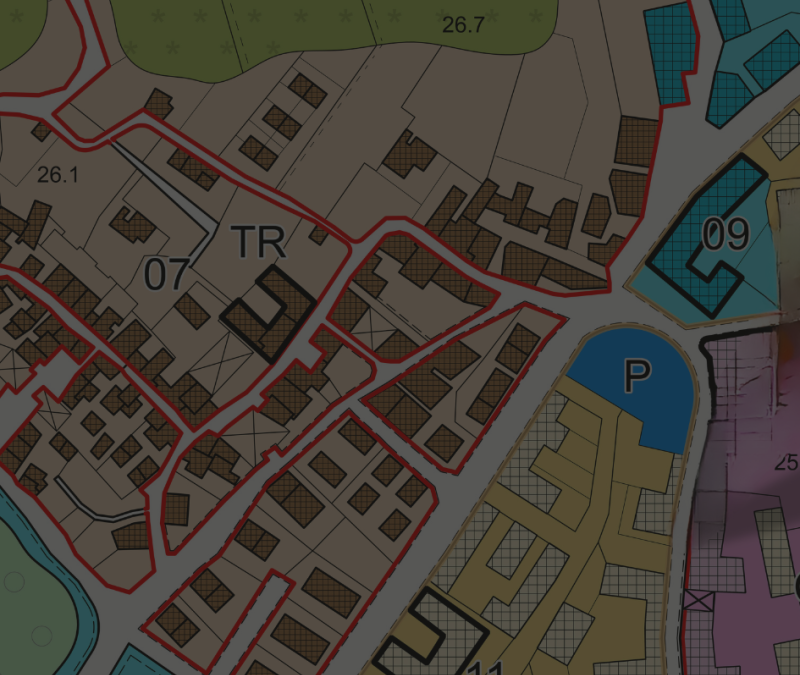Knowing more about this often-complex subject can expand opportunities.
Can a developer put a luxury apartment building squarely in the middle of a busy manufacturing sector? The short answer: probably not.
Zoning ordinances play a pivotal role in shaping the landscape of commercial real estate (CRE) development, with far-reaching implications for everyone involved – including local communities. These regulations can be complex. They establish permissible land uses, building sizes, and structures within designated zones, directly influencing the use and value of commercial properties.
Determining Uses
Zoning categorizes areas for specific allowable uses, such as commercial, residential, or industrial. Commercial zones in certain areas may permit businesses such as retail stores, restaurants, or offices, while restricting others. These restrictions can have a major effect on the type, size, and height of buildings, as well as setbacks and parking requirements.
Lance Cobb, an Advisor with SVN Commercial Advisory Group, said that a working understanding of zoning is an indispensable part of the CRE process.
“It’s crucial for landowners to be well informed about their current land-use zoning, while also understanding any potential land-use entitlements established by the local government,” Cobb said. “These entitlements may facilitate a rezoning for alternative uses, potentially increasing the land value for the owner and aligning with the planning division’s vision for the future.”
Why is Zoning Necessary?
Zoning classifications are vital to a community for several reasons. The first of these is land-use management. Local governments determine how land can be used within a community, ensuring that residential, commercial, industrial, and recreational areas are appropriately designated. Residents of most communities want to see continuity, not a factory next to a restaurant next to a hospital.
“Each county establishes a comprehensive land-use code and table,” Cobb said. ” Attending local government meetings would be highly beneficial for landowners, as this provides an opportunity to gain insights into the identity of their community and to ascertain areas where their land can flourish, contributing positively to community development.”
By separating incompatible land uses and preserving green spaces, zoning classifications help maintain the quality of life for residents. They prevent such nuisances as noise pollution, traffic congestion, and industrial hazards from encroaching on residential neighborhoods.
Additionally, zoning ordinances help shape the character and identity of a community by providing guidelines for architectural style of development. They protect historic districts. And when development does occur, these regulations help ensure there will be sufficient infrastructure (e.g., roads and public utilities) to support it.
Rezoning
One of the most significant aspects of zoning ordinances in commercial real estate is the process of rezoning. This involves changing the designated classification of a property to allow different land uses or development intensities. The process typically requires approval from local planning authorities and may involve public hearings and community input. It can significantly impact property values, investment opportunities, and overall economic strength of an area.
“Rezoning presents certain anticipated challenges; however, these challenges, when met with expertise, can be transformed into opportunities,” Cobb said. “Landowners should carefully consider factors such as timing, location, and cost when contemplating rezoning for their property.”
Even with those considerations in mind, landowners should be ready for anything, he added.
“It’s wise to prepare for contingencies in the event that the property cannot be rezoned for the intended use, whether it be for the owner’s purposes or those of a potential buyer, typically a developer,” he said.
Get a Zoning-Wise Advisor
This process can make CRE deals possible that would otherwise never go through. In the summer of 2022, for example, Advisors with SVN Commercial Advisory Group managed the sale of a PNC Bank Building in the Lakewood Ranch area of Manatee County. While zoned for the banking and financial industry, the buyer’s plan was to convert the facility into a dentist’s office. The reclassification of this property made this new use possible.
Understanding the complexities of zoning ordinances and the rezoning process is essential for stakeholders navigating the dynamic landscape of commercial real estate. It’s important, therefore, to work with Advisors who understand the process well and can open up new possibilities for clients. SVN Commercial Advisory Group has the expertise and experience to negotiate the often-difficult realm of zoning.

Lance Cobb
Hospitality & Urban Land Advisor
941.387.1200
Lance.Cobb@svn.com

